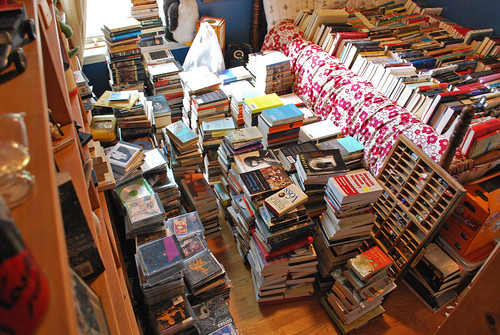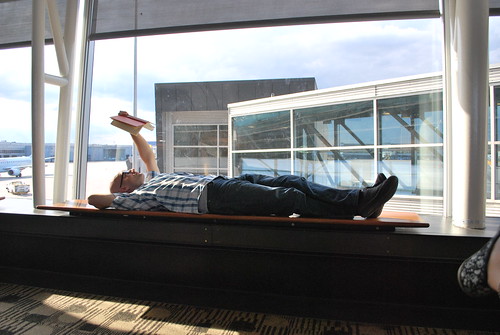
{Photo by rocketlass.}
If I'd had a bit more time this week, I would have been ready for this day with some Thomas Paine or something from my beloved Abraham Lincoln. Instead, I'm in Indianapolis to help get out the vote for Obama, and all I have to offer from the conjunction of literature and politics is this line from the journals of Jules Renard, who was not just a writer, but also the mayor of his small hometown in France:
As mayor, I am supposed to look after the maintenance of the rural roads; as a poet, I like them better neglected.Here's hoping for good news tonight.




